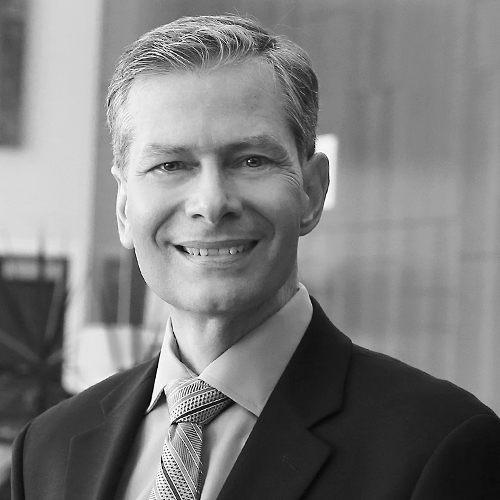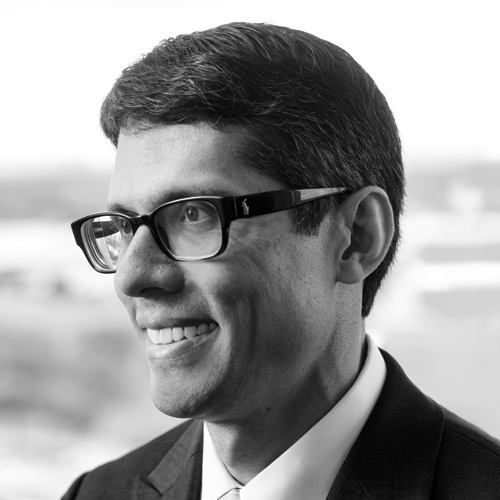As a fresh-faced lawyer, Hugh Welsh was determined to launch a career that involved more than litigation. After cutting his teeth as a litigator at Dughi & Hewit alongside future New Jersey governor Chris Christie, he later moved over to McCarter & English, where he gained experience in various legal arenas including mergers and acquisitions, real estate, intellectual property, labor and employment, and insurance.
While the scope of his early days in practice would serve Welsh well over the years, it wasn’t until he learned about “hidden hunger” and its effect on children around the world that he challenged himself to find out just how impactful his expertise could be.
Welsh, president and general counsel at Royal DSM’s North America division, is on a mission. The global sciences and materials corporation has joined the fight to end world undernutrition, and Welsh—squarely in position to parlay his legal prowess—is helping to lead the charge.
DSM began as a mining company in 1902 before spreading into fertilizers and other chemicals. By the 1970s, mining was being shuttered in the Netherlands, and its chemical business took over. Two decades later, DSM evolved into a life-sciences and materials multinational.
Today, due to multiple acquisitions and ventures, DSM’s portfolio spans wide. It provides solutions to global markets including food and dietary supplements, personal care, animal feed, medical devices, automotive, paints, electronics, life protection, alternative energy, and biobased materials. In fact, citing nearly €10 billion in annual sales and over 20,000 employees, Welsh calls DSM “the biggest company you have never heard of.”
“We’re the world’s largest nutritional ingredient company. And with that comes great responsibility.”
Over the years, DSM has initiated several partnerships, especially with nongovernmental organizations (NGOs), to develop its Nutritional Improvement Program—first to bring Vitamin A and other micronutrients to children worldwide who need them, and later to provide scientific and technical support to areas in need—in an effort to enact visible, sustainable change. For Welsh, DSM no longer stands for “Dutch State Mines.” It stands for “Doing Something Meaningful.”
“We’re the world’s largest nutritional ingredient company,” says Welsh, adding that the division accounts for roughly half of DSM’s revenue. “And with that comes great responsibility. We make products that people need to reach their full physical and cognitive potential, and we need to find ways to make sure that everyone has the opportunity to get the essential nutrition they require.”
To understand how serious the issue of undernutrition is, Welsh says to simply count to six. That’s how long it takes for another mother to lose her child to hunger. The sheer number of deaths from malnutrition, especially in lesser-developed countries, can be a difficult fact to swallow. Each year, more than 3.1 million children succumb to nutrition-related deficiencies, and more than 795 million people do not even get enough food to lead an active, healthy lifestyle, according to the World Food Programme.
Globally, more than two billion people do not get the essential nutrition they require to reach their full potential. In the United States, nearly half of children do not get the essential nutrition they need for healthy development. Welsh says this is called “hidden hunger.”
According to the Nutrition Journal, “hidden hunger” occurs when people consume an adequate amount of calories, but lack foods high in micronutrients, such as the vitamins and lipids needed for healthy cognitive and physical development. The problem is especially prevalent in countries where inexpensive food staples, such as bread and rice, are often the only foods available for meals. Hidden hunger ultimately thwarts social and economic progress.
In 2006, DSM began its ongoing partnership with the World Food Programme (WFP) to bring micronutrient education to WFP’s School Feeding and other programs.
One product that they are developing is a tasteless powder that can be sprinkled over foods to improve nutritional intake called “MixMe.” The move not only complemented DSM’s commercial operations, but more importantly, provided the company with a mission beyond profits, according to Welsh.
“With the WFP partnership, our employees became energized and engaged, they understood how the work they were doing was helping to save lives and improve the outlook for millions of children around the world,” Welsh says. “Our employees wanted to be involved in the partnership, directly involved. We could send a few employees a year to work in WFP school-feeding programs, or organize fundraisers, but it wasn’t enough to satiate the passion and enthusiasm our employees now felt for the important role DSM played. We needed to do more.”
“More” came in the form of a new partnership that would allow hundreds, if not thousands, of employees to directly engage with improving outcomes in sub-Saharan Africa. Partners in Food Solutions (PFS) is a partnership initially formed by DSM, General Mills, and Cargill—later adding Buhler and Hershey’s—which enables DSM’s employees to volunteer their technical expertise over digital channels like Skype.
“Organizations like TechnoServe, who work in Africa, find food processors who need help and if they meet certain qualifications, connect them with PFS to arrange for volunteer consulting from a member organization volunteer network,” Welsh explains. “Working with these African endeavors, they aren’t looking for our money or material, but our modern, professional knowledge. Our employees get to volunteer from their desk and do something meaningful to get to improve the manufacture of nutritious food in Africa.”
Through experiences with PFS and others, DSM learned from African governments and experts that there is a need for more production of nutritious food at scale—both in the NGO community, which includes the WFP, as well as the regional commercial markets. In the future, at the invitation of interested governments, DSM will use its resources, NGO partnership credibility, deal experience, and nutrition expertise to create new businesses in Africa with nontraditional shareholders and business models. It will build and operate the large-scale nutrition food plants the continent requires.
The initiative is also one that Welsh hopes will source raw materials from local smallholder farmers and supply-aid agencies serving the continent, creating a virtuous circle of sustainable economic growth.
The communities can see projects like these as the beginning of the end of malnutrition, as well as economic disparity. “We really see it as just another example of how we at DSM can continue to do well by doing good,” Welsh adds.
Combined with his passion to do something meaningful, Welsh says his legal and M&A skills—many of which were acquired all those years ago first at a small New Jersey law firm then at its biggest at the time—have been crucial in overcoming the challenges that can come with working with NGOs, local governments, community groups, businesses, and citizens—especially as DSM looks to further its impact in more creative and innovative ways.
“To be able to see how everything works together and to play your role—if nothing more than as an air traffic controller—to develop the talent to run this machine, has just been an awesome experience,” Welsh says. “I wouldn’t change it for the world.” AHL


